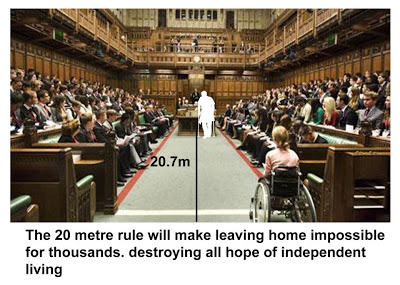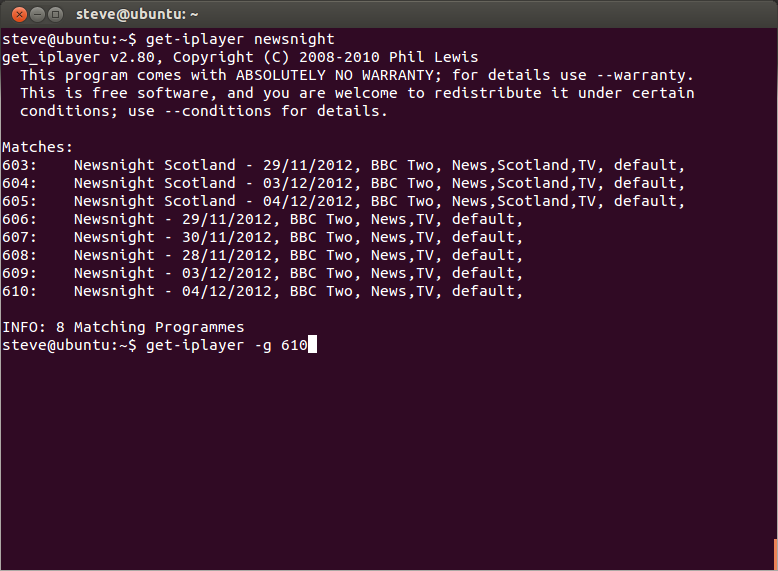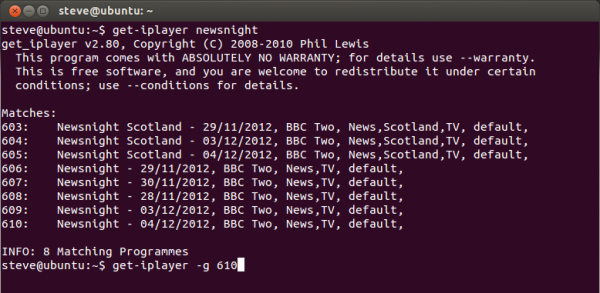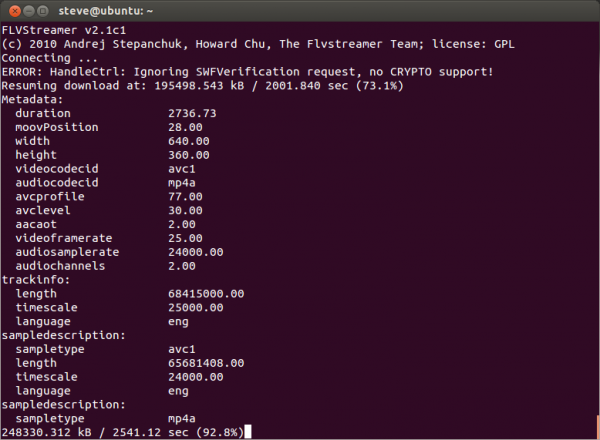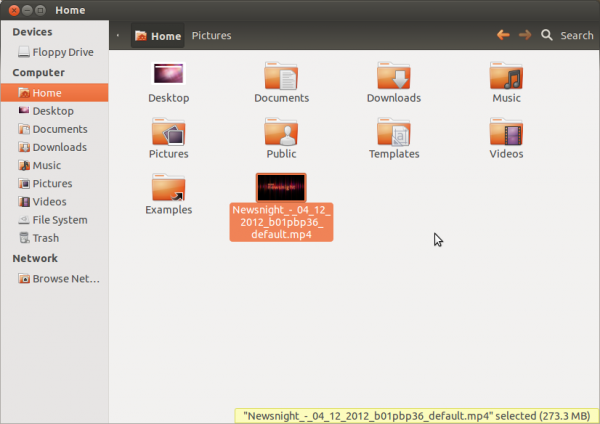This won’t be a short post, but it is a crucially important one.
I have never written about something on this blog that I couldn’t prove to be true. If I didn’t have evidence that I could show you online, I didn’t write about it.
I’ve had many conversations with Labour MPs or peers or journalists or managing directors or trade unions that I couldn’t share, but each one added to my overall understanding of ESA (Employment Support Allowance)
Today though, I think it’s important that I try to lay out very clearly what I feel I “know” about ESA, WCAs, Atos, the DWP and the current political situation.
I’ve dismissed those I judged to be fools along the way, the way we all do every day as we decide to trust someone or not, to believe something or not. I’ve made my judgements from meeting people, from talking to them. I like to “see the whites of their eyes” when I can. I research people, I try to “know” them and what makes them tick.
I’ve judged evidence and analysis along the way and tried always to get as close to a truth I could prove as possible.
I’ve dug into the history of welfare reform where I could. I’ve tried to find out what was going on with Labour at the time, when were Atos brought in? What was Unum’s involvement, who designed ESA? Which DPOs and charities were involved?
At every stage, with every decision, every speech, every article, I’ve tried to think of the people who read my blog. I’ve tried to ask what we need to change and why. How to change it. Who are the real enemies? Why? What methods of demanding change are effective?
Of course, my judgements may not have been yours. I have absolutely no way of actually “knowing” if I was right or wrong, too naïve or too cynical, biased or balanced but the following summary is where I feel we are in my heart from everything I’ve read and everyone I’ve met.
There are so many things that so urgently need changing about ESA, forgive me if I forget any here. For every bullet point, the section in italics is my opinion on where we currently stand.
- Medical evidence from own GP or consultant rarely taken into account
One of the most shocking statistics disclosed about WCAs was that DWP decision makers only refer to medical evidence as well as the Atos decisions in 2% of cases. Harrington recommended that medical evidence should always be considered and there has been progress- 8% of decisions are now overturned by DWP decision makers, suggesting they are referring to medical evidence much more. This has not yet been rolled out everywhere, so we might hope to see the figures improve further. However, the ideal solution would be for decisions to be taken by an independent doctor, based on all the evidence available.
- Descriptors used to assess fitness to work are far too narrow and not based on real life. They discriminate against those with mental illness, long term chronic illness, learning difficulties and more.
No assessment can ever be fair or functional if the descriptors are wrong. ESA descriptors are so wrong, they need totally fundamental reform. I got the impression that something shifted in the early part of this year. Government suddenly decided to go ahead with a trial of alternative descriptors (you can see them here) that were much fairer and broader and more rooted in a real life test. Though far from perfect, I believe they would give much more realistic results and provide much more opportunity for HCPs to make informed decisions.
The timescales to test these new descriptors is very quick for government. They will be trialled alongside a panel of expert decision makers to see how accurate they are. This process will be run by civil servants and if they are a notable improvement on the current descriptors, government do say that they will be implemented.
We can help make sure the new descriptors are fairly trialled and the results accurately reported by keeping an eye on the trial, communicating with the charities responsible for writing the new descriptors and making sure that this isn’t somehow quietly shelved while we’re not looking. However, if all went well, we might be looking at the introduction of the new descriptors by 2014.
- Disability assessment centres are not all accessible to disabled people, often with no parking (!?!)
This is something that Atos has pledged to change as soon as they can. Whether might choose to be sceptical, but they have said on their blog and elsewhere that they are committed to quickly making all centres fully accessible.
We can make sure they do this by writing to them and saying how important it is, urging them not to delay and telling them your own stories of trying to access an inaccessible centre.
- The Support group is too narrow and far too difficult to get into.
Support group numbers have been steadily rising. Last year the government had to find an extra £1 billion due to paying more people than they had predicted going into the support group. The figures are still rising and suggest they will continue to rise as the Harrington changes are rolled out. Grayling has said that they are “intensely relaxed” about this rise in Support Group numbers if it means those in genuine need are getting help and certainly, there doesn’t seem to be any evidence of this rise being suppressed or restricted.
Once the latest figures are adjusted to take account of appeal decisions, around 35% will end up in the Support Group, around 42% in the WRAG and 23% fit for work. This is a huge improvement on the shocking days of new-claim only ESA stats, where just 6% were going into the support group, 18% into the WRAG and a full 77% of claims not resulting in any award of ESA.
There’s still a long way to go. I would argue that the support group should be bigger than the WRAG and that 23% is too many being found fit for work, but there really has been great improvement.
- Sanctions of any kind, but particularly time limiting bad health to one year, are inappropriate for people with serious illnesses or disabilities.
Sanctions and penalties are most beloved by this government despite no evidence at all, anywhere in the world that they work. They have totally refused to listen or compromise at all over this and I can’t see that they will. The public are currently very supportive of sanctions and mostly believe they should actually be tougher.
However, workfare, work providers and some of the reality of sanctions have taken a hit this year thanks to the work of people like Johnny Void and Boycott Workfare, with big companies experiencing a strong public backlash leading them and charities to pull out of workfare and other failing schemes.
More to the point, the way the government has set up the “payment by results” scheme, means that small providers who tend to get good results are going to the wall while less targeted, less successful large companies are unable to hit the targets set. The reality is, most sanctions will either never be used, or will be quietly abandoned as the government realise they either cause too much embarrassment or the scheme collapses totally because none of the providers are getting paid.
- Decisions take far too long. Appealing a wrong decision can take well over a year.
This is only getting worse with backlogs growing, targets for re-assessment falling further behind and tribunals taking longer. Soon, as the government realise that it is, in fact, impossible to actually assess 2 million people and keep on assessing them indefinitely. They cannot achieve accurate assessment rates assessing 11,000 people a week. There simply aren’t the HCPs to do the job.
Assessment rates need to fall by around half and government must accept that the whole process will take longer then they predicted. When assessment rates DO fall, the appeal rate also falls drastically as shown in Kettering who have implemented all of the Harrington changes enthusiastically. Getting the decision right first time, by taking the necessary time with each claimant saves the taxpayer millions and the person being assessed trauma and unnecessary waits for tribunals etc.
There is strong anecdotal evidence that Atos and the DWP are now pre-assessing many as unable to work without calling them for assessment. This is exactly what we always said they would have to do. It is how the original IB system worked and though the government are clinging on to the rhetoric, they are realising we were right all along and there really IS no point in assessing people who will never get better and who clearly will never work. This is a big win, but you’re unlikely to hear about it.· Healthcare professionals (HCPs) used by Atos to assess disability do not have to be doctors and do not need to have any specialism or prior understanding of the condition the claimant suffers from to make a decision.
Atos have pledged “mental health champions”, up and down the country, claiming that they will make the assessments fairer for those suffering from mental illness. This is welcome, but unless the assessor has some knowledge of the conditions they are assessing they cannot possibly make an accurate decision. Atos might consider other teams of expert assessor for other conditions. Though it might mean claimants travelling further to be assessed, if specialist teams were more accurate it would be a small price to pay. All HCPs should have a working knowledge of either general medicine or the speciality of the person they are assessing.
- Reports written by HCPs are inaccurate; often bearing no resemblance to what the claimant reports was actually said.
This still seems to be shockingly common. The DWP have said in principle that all assessments can be recorded, but in reality are blocking the process. Until someone being assessed for ESA is afforded the same basic rights as a criminal, and assessments are recorded, claimants cannot make sure this doesn’t happen.
As both Atos and the DWP have said that assessments can be recorded and have pledged to get working recording machines into assessment centres, we can make sure people get accurate HCP reports by keeping the pressure on the DWP to provide these machines in every centre. This is one area that I know is under great pressure legally too. Having the law on our side can only help.
- Questions are misleading, seemingly designed to “catch people out”
A longer assessment using the improved descriptors, should make this less likely, but there is a culture of suspicion between state and claimant that must be talked from the roots up. All the time ESA is only designed to catch the cheats, it will never serve those in genuine need.
- Mail containing highly personal and sensitive information on forms is opened and sorted by a third party.
Mails used to be opened by the Royal Mail, sorted and only then sent on to Atos. Once the DWP finally accepted that the practise was commonplace, they have now pledged to stop it. We can make sure they do by keeping the pressure on.
- Correspondence sent to the claimant is threatening and frightening.
This is one area where Atos have seemed very keen to make improvements. They have redesigned their website to make information more easily available, less frightening and more sensitive. They now have a patient charter and say that they will work hard to make the whole claimant experience more customer focussed and compassionate.
They would like people to advise them on how to do that, what we would like to change etc. Of course, we can refuse to make things better right at the point where Atos are asking how to, but that feels a bit like a four year old having a tantrum. We’re grown ups and we can’t change things if we don’t explain what needs to change and why.
- Language used by politicians and press to discuss those claiming ESA is derogatory and demeaning. Scroungers, skivers, feckless, festering – we are called all these things. Journalism is often lazy and full of inaccuracies.
For some time now, we haven’t been unheard. Just two years ago, no-one was writing about ESA at all, other than to remind the public that we were all scroungers who could be working. Now, the Guardian, the Mirror, the Independent, Private eye, Political Scrapbook, Left wing blogs and even the Spectator are running regular stories about the failures of ESA and the WCA. Channel 4 have run some fantastic sections on the failures of ESA and even the Daily Mail have allowed blogs about ESA written by the indomitable Sonia Poulton.
Slowly but surely, things are changing. Bit by bit we are [persuading those that matter to persuade the public that we are right and the government are wrong.
It is frustratingly slow. The public have to read things many times over before they accept them and we still have a long way to go. But things are totally different now to two years ago and momentum is building in our favour.
- ESA had cross party support. There was almost total political consensus that it was good policy.
From my own point of view, this is what I most wanted to change and the thing I’ve worked hardest on. All the time we still have a Labour party blind to the suffering of sick and disabled people, they are not a Labour party. It has been achingly slow with disappointments and faux-pas at every stage. It pains me that I have had to drag Labour to every concession kicking and screaming, that some in the party still think ESA is right. It hurts me to remember some of the judgemental speeches and thoughtless, unfounded coalition policies they originally supported.
But as I wrote here Labour have made real steps in the past year to put the mistakes of ESA behind them. They are now saying they are listening and travelling the country discussing sickness and disability policy with those actually affected. They have laid out a set of “rights” they believe sick and disabled people should be able to rely on and they have admitted ESA is a mess and isn’t working . Byrne’s Beveridge 2 speech was a turning point in which Labour started to dare to say the word disability again. I DO believe Labour are listening. They realise that we face very grave threats, that we are not just the usual suspects making a fuss. It’s up to us to tell them what we need. We can’t sit at our keyboards complaining then refuse to say what we want.
The EDM raised by John McDonnell was signed by 114 MPs and became the 3rd most signed EDM Every day a new Labour MP or even a Lib Dem or Conservative join the growing chorus of MPs opposed to WCAs. Again, it’s slow and it’s frustrating, but we’re getting there.
It is also now Lib Dem policy to oppose WCAs despite their actions. This might not help now, but could come in very handy in the event of a future Lib/Lab coalition,
Once the political consensus is broken, it gets much harder for the government to get away with leaving ESA a shambles.
Jon Cruddas, the head of Labour’s policy review, has promised to make sure anything we send to Liam Byrne and Anne MacGuire goes to the very heart of discussions over future policy. I believe him because he’s a good guy who’s written articles about sickness and disability that sound just like mine. He is a politician who really understands our issues.
I honestly believe we have a chance if we just make sure we tell Labour what they have to do and keep the pressure on them to do it.
But we have to tell them.
- It’s pointless expensive and unnecessarily distressing to constantly re-assess those with disabilities so severe and profound that they will never work.
(Dealt with under delays and appeals above)
- The help & support politicians say people with serious illnesses and disabilities will get to find work is totally inappropriate and ineffective. It conflates disability benefits with JSA (Jobseekers Allowance) Most people who lose ESA have not found work.
As I’ve argued here and here it is no good sorting out all of the problems above if there is no work sick and disabled people can actually get or do. The work provision is woefully inadequate, the system is not going to make work pay for us and we need to totally re-design the help and support government provide. If you can take part, please leave your comments below the articles and let politicians know what you need to work and what that work should be
- The public were unaware of all these faults and generally thought ESA was a good policy.
Sadly, this is the area where we still have the most work to do. Most people still don’t know what’s happening and disability is not an issue they think about often or that interests them much. If we are sitting around waiting for people to wake up and say “Oh, this is terrible, we have to stop it!” they aren’t going to do that any time soon. Think how long it took for Tom Watson to expose phone hacking? It took years to spill over into genuine public outrage. There isn’t going to be a revolution.
All we can do is chip away, every day, telling more and more people, getting them to tell even more people. Slowly but surely, opinion will change.
If you look at all I’ve written above, we’re well on the way to winning most of the points above. If we haven’t won, we’re at least at the place where we’ve won a seat around the table. We’ve made massive progress since 2010 and the truth is that with new descriptors, accessible centres staffed by respectful courteous experienced staff, more paper assessments taking place, higher support group and WRAG numbers a commitment from Labour to make rights a reality for disabled people and to really listen to what we need we have all the ingredients of success. With Atos claiming that they are willing to improve assessments implement the Harrington changes and allow assessments to be recorded we’ve come a huge way in two years.
Of course we still have a long way to go, of course it isn’t enough but I think it shows for itself how successful a strategy of engagement and lobbying can be. We would have achieved none of this without sustained and often boring small changes, bit by bit, day by day, chipping away at everything that is warped and wrong with ESA. The government become more and more isolated by the day as the BMA, every main charity, Atos, the press and the opposition parties edge further and further away from supporting ESA.
This might not be the way everyone would do business but I don’t care about saving face or an ultimate glorious win that may never come.
I want to ACTUALLY win and that means compromise, boring detail, hard work and disappointments.
The proof of the pudding will be ESA in 2015. Tragically that will be too late for many, but better to win slowly but surely than to never win at all.

